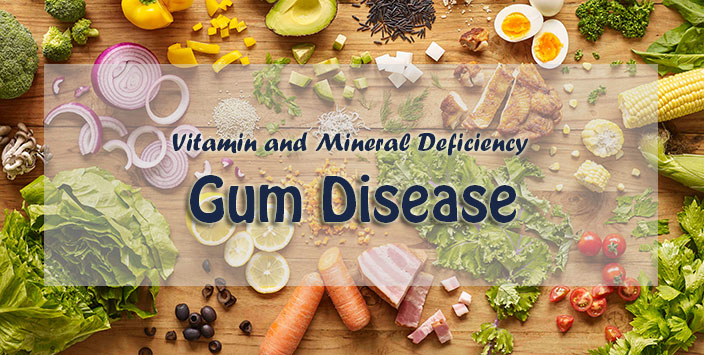Potential Nutrient Deficiencies
The Vitamin Deficiency
Vitamin D
Vitamin K
Vitamin C
VITAMIN D is a fat-soluble vitamin that is essential for the regulation of calcium and phosphorus levels in the body. It helps to promote the absorption of calcium and phosphorus from the intestines, which contributes to bone health and growth. VITAMIN D is also important for immune function and has been associated with reduced incidence of certain diseases such as multiple sclerosis, depression, and some types of cancer.
The recommended daily intake of VITAMIN D varies according to age and gender. The following are the recommended daily intake for different age groups:
– Infants 0-12 months: 400-1000 IU/day
– Children 1-18 years: 600-1,000 IU/day
– Adults 19-70 years: 600-800 IU/day
– Adults over 70 years: 800-1000 IU/day
NOTE: Some people may need higher VITAMIN D intake, such as those who have limited exposure to sunlight, have dark skin, are obese, or have certain medical conditions. It is always recommended to consult a healthcare provider about the proper dosage of VITAMIN D supplements.
VITAMIN K is a group of fat-soluble vitamins primarily important for bone health and blood clotting. Two main types of VITAMIN K are existent: K1 (phylloquinone) and K2 (menaquinone). K1 is found in plants, particularly leafy green vegetables, while K2 is produced by bacteria in the gut and is also found in animal products such as meat, eggs, and dairy. VITAMIN K is important for the formation of clotting factors, which help to prevent excessive bleeding, and for the activation of proteins that regulate bone metabolism and protect against osteoporosis. Some people take VITAMIN K supplements to improve skin health, reduce inflammation, and promote heart health. VITAMIN K is also used in some skincare products to reduce the appearance of dark circles and fine lines.
The daily recommended intake of VITAMIN K varies depending on age and gender:
– Infants (0-6 months): 2 mcg
– Infants (7-12 months): 2.5 mcg
– Children (1-3 years): 30 mcg
– Children (4-8 years): 55 mcg
– Children (9-13 years): 60 mcg
– Teens (14-18 years): 75 mcg for females, 90 mcg for males
– Adults (19 years and older): 90 mcg for females, 120 mcg for males
– Pregnant women: 90 mcg
– Breastfeeding mothers: 90 mcg
NOTE: It is important to talk to a doctor before taking any VITAMIN K supplements or changing your diet to make sure it is safe for you.
VITAMIN C, also known as ascorbic acid, is a water-soluble vitamin that plays an important role in maintaining the health of the body. It is an antioxidant that helps to protect the body against free radicals, which can damage cells and lead to diseases such as cancer and heart disease. VITAMIN C also plays a key role in the production of collagen, which is a protein that is essential for healthy skin, bones, and connective tissue.
The daily recommended intake of VITAMIN C for most adults is between 65 and 90 milligrams per day. However, this amount may vary depending on factors such as age, gender, and overall health status.
– Infants (0-6 months): 40 mg
– Infants (7-12 months): 50 mg
– Children (1-3 years): 15 mg
– Children (4-8 years): 25 mg
– Children (9-13 years): 45 mg
– Adolescent boys (14-18 years): 75 mg
– Adolescent girls (14-18 years): 65 mg
– Adult women (19 and older): 75 mg
– Adult men (19 and older): 90 mg
– Pregnant women: 85 mg
– Breastfeeding women: 120 mg
NOTE: Smokers may need higher amounts of VITAMIN C as it helps to counteract the negative effects of smoking on the body. Athletes and individuals undergoing stress or recovering from surgery may also need higher amounts of VITAMIN C to support their immune system. It’s always best to consult with a healthcare professional to determine the appropriate daily intake of VITAMIN C for your specific needs.
The Mineral Deficiency
Zinc
ZINC is an important mineral that plays several vital roles in the body. It is involved in immune function, growth and development, wound healing, and DNA synthesis. It is also important for the senses of taste and smell, and for maintaining healthy skin, hair, and nails. ZINC deficiency can lead to a weakened immune system and delayed growth and development, while excessive intake can be toxic and cause gastrointestinal problems.
The daily recommended intake of ZINC varies depending on age and gender. The following are the recommended daily intake of ZINC:
– Infants aged 0-6 months: 2 mg
– Infants aged 7-12 months: 3 mg
– Children aged 1-3 years: 3 mg
– Children aged 4-8 years: 5 mg
– Children aged 9-13 years: 8 mg
– Adolescents (boys aged 14-18 years): 11 mg
– Adolescents (girls aged 14-18 years): 9 mg
– Adults (men aged 19+ years): 11 mg
– Adults (women aged 19+ years): 8 mg
NOTE: Pregnant and breastfeeding women may need additional ZINC intake, and it is recommended to consult with a healthcare provider to determine the appropriate intake.
- READ MORE




